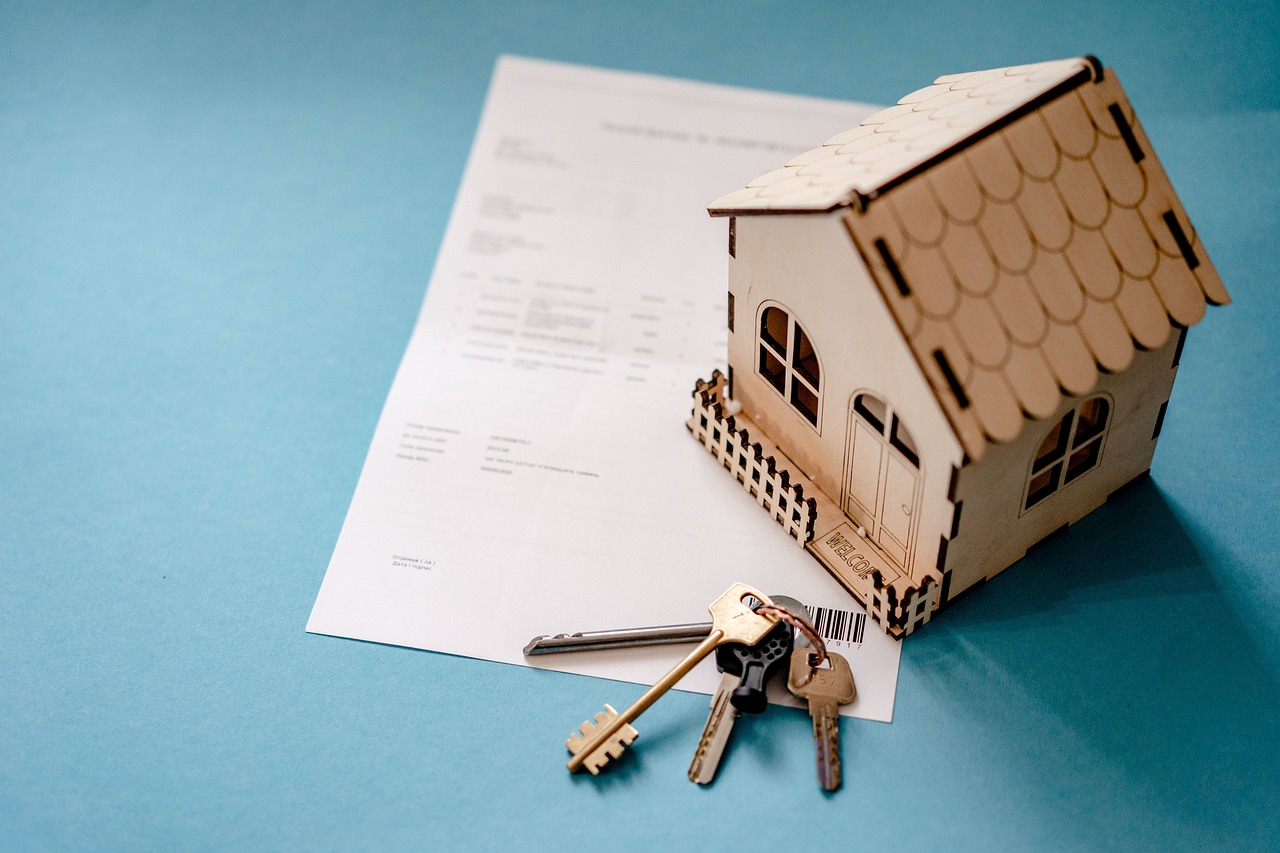Getting a real estate lawyer is a must when planning to buy or sell a house in Canada. Here are some of the main reasons why

Once you’ve decided to buy a house in Canada, be sure to make a checklist on the people and things to consider in your plans. The same goes for when you wish to sell any real estate property.
Finding a property attorney should be at the top of that list. This isn’t just for first-timers but for anyone who wants to buy or sell their home.
In this article, we’ll discuss why a real estate lawyer can help you seal the deal.
If you’re a mortgage professional, you might want to send this to your current and prospective clients.
Why do you need a real estate lawyer?
You need a real estate lawyer to help with real estate transactions - whether that’s selling your property or finding the perfect house to buy.
This is especially true for those who have little to no knowledge about real estate and legal proceedings related to it. A real estate attorney will assist their client from the beginning of the transaction up to the closing period.
To help explain why you need the services of a property lawyer, let's go over the role that they play in real estate dealings.
What do real estate lawyers do?
Here are some of the roles that real estate lawyers perform:
1. Handles contracts and other documents
Property lawyers handle the drafting of real estate contracts as well as other necessary paperwork. This includes the preparation and review of these legal instruments in order to protect the interests of their clients. Below are examples of documents used in real estate transactions:
- Agreement of Purchase and Sale
- Home Inspection Report
- Mortgage Agreement
- Transfer of Ownership
It is of utmost importance that real estate contracts are drafted in a way that safeguards your rights and interests. The rationale behind this is that the wordings used in the offer can negatively impact the client's side.
For example, if the contract says that the property is “subject to inspection” and the inspection exposes a defect, the client cannot do anything about it. Meanwhile, wording such as “subject to home inspection to the satisfaction of the buyer” works in the client’s favour. It gives them a choice to back out of the offer if they are not happy with the inspection.
2. Assesses and resolves disputes
It is common for real estate buyers and sellers to face legal disputes in their dealings. There may also be instances when homeowners experience property-related issues with their neighbors or with municipal authorities.
For these problems, real estate lawyers can help their clients figure out how to move forward. They may provide their advice and propose a solution to the matter at hand via legal consultations.
3. Deals with properties of spouses and families
Arrangements between ascendants and descendants, married couples, and other relatives can be difficult particularly when it is about their properties. And in many cases, the buyer and seller of a house are family. With this, it is imperative to seek the assistance of a real estate lawyer.
Concerned parties can consult real estate lawyers for clarifications about shared properties, inherited land, property rights, and other similar issues.
4. Conducts title searches
The title of a property is a legal instrument, functioning as an official certificate that states the ownership and rights of an entity or a person over a property or an asset.
Real estate attorneys deal with legal papers as stated in the previous section. In line with this, they conduct title searches for clients during the conclusion of a real estate deal.
The purpose of a title search is to identify the following:
- property’s lawful owners
- date of registration
- land description
- easements or right of ways
- any encumbrances (e.g., mortgages, liens, charges, and title claims)
- other existing restrictions registered against the property that needs to be resolved
This information will allow the real estate lawyer to assess the title of the property’s history and, in turn, convey this information to the buyer.
5. Closes a real estate transaction
A real estate transaction is considered closed when both parties reach an agreement. It also serves as the final step in the transaction.
Real estate brokers can work hand in hand with real estate lawyers when closing a sale. Brokers can help speed up finalizing the deal by providing other requirements like debt payouts, broker conditions, and cheques as soon as possible.
Once these requisites are satisfied, the property lawyers of both the buyer and the seller will carry out the necessary legal procedure to complete the closing process. This involves:
- conducting a title search as shown above
- signing the contract and completing other paperwork
- collecting or paying funds
- transferring title and ownership

6. Navigates Canadian real estate laws
Expertise in the real estate industry and in-depth knowledge of Canadian real estate laws are two of the fundamental qualities that every property attorney must possess. Both serve as the basis for their clients’ trust and confidence.
To shed light on some of the laws that real estate lawyers navigate, we’ll give you a background on Canadian property law.
Property law in Canada regulates personal, intellectual, and real property laws including the rights of individuals within the country. Focusing on real property, common law in Canada covers all land along with any structures or buildings that are regarded as permanent. It also incorporates any fixed attachments and any minerals under the land. This legal definition of real property also refers to the rights and privileges of the lawful owner.
Canadian provinces except Québec follow common law for properties. Québec adheres to their Civil Code which is where the fundamental principles of property law for private individuals in Québec are stated.
In summary, here is a list of laws pertaining to real estate transactions and relations in Canada:
- Property law for all Canadian common law provinces
- Succession law and family law on property by provincial legislatures
- Statutory legislation relating to property
- Québec property law found in the Québec Civil Code
If the information above is a bit overwhelming, that is perfectly acceptable. That's another reason why real estate lawyers are essential. Buyers and sellers wouldn't have to worry about legal jargon and statutory interpretations if they are aided by well versed legal professionals.
7. Exercises due diligence
Due diligence is a critical aspect of real estate transactions. It refers to the investigation and examination of a property to analyze its legal, financial, and operational aspects. Real estate lawyers play a vital role by conducting due diligence on behalf of their clients.
Due diligence is conducted to evaluate liabilities, issues, and other potential risks. It covers legal, financial, physical, and environmental due diligence. It also includes a thorough review of every legal instrument that is associated with the property.
Types of due diligence
Legal
Legal due diligence is carried out to understand a real estate property’s legal implications. Much like conducting a title search, this is done by examining the ownership history, verifying if there are hurdles or any ongoing legal disputes filed against the property.
Financial
Exercising financial due diligence will determine the financial viability and profitability of the property. It involves a review of the financial statements, property taxes, leases, and rental documents.
Physical
A simpler term for this is making a property or home inspection. The analysis of the house, building, or condominium will show any potential risks, maintenance issues, and all the necessary repairs associated. These risks and issues can then impact the property's usability and value.
Environmental
This will reveal any harmful effects, potential risks, and liabilities regarding the environment where the property is built. Real estate lawyers may need to conduct site visits and assess environmental reports. This aims to point out environmental hazards such as contamination, toxic substances, and other concerns.
By exercising due diligence, real estate lawyers guide their clients in making well-informed decisions. Not only does it guarantee transparency while mitigating risks, but also minimizes unexpected events. All parties involved are better protected when due diligence is performed.
8. Represents clients in arbitration or in court
There are times when real estate transactions lead to legal conflicts or disputes. Should that happen, real estate lawyers can represent the buyer or the seller. This representation is performed in negotiating settlements, arbitration, court hearings, and other legal proceedings.
Since there are cases where litigation in court is initiated by real estate dealings, a real estate lawyer’s expertise on property laws is crucial in resolving such issues in a timely manner. They will work towards achieving a favourable outcome for their client.
If you want to find out what happens when real estate deals go through litigation, watch this:
Other responsibilities that real estate lawyers have:
- applying for first-time homebuyers' rebate
- calculating land transfer tax
- providing statement of adjustments and other financial documents
- aid in retitling of properties
- interpreting the zoning ordinances
The importance of a real estate lawyer in buying property
As referenced earlier, seeking the help of a property attorney is vital in all real estate transactions and related affairs. For the buyer, it is ideal to engage a real estate lawyer before making an offer to purchase. Below are some of their responsibilities:
- evaluate your financial capacity
- clarify the mortgage terms set by the lender or bank
- explain the contract and its conditions to you in detail
- guide in setting up a title insurance
The importance of a real estate lawyer in selling property
As for selling property, hiring a real estate lawyer is also crucial. The primary role of a real estate lawyer is to aid the seller in negotiating the conditions set in the contract. They can also perform the following tasks:
- request for payout statements
- prepare the sale documents
- receive the funds and use it to pay the mortgage and realtor
- prepare the cheque for balance sale proceeds
Now that you understand why hiring a real estate lawyer is beneficial for property buyers and sellers, you might also be interested in becoming a real estate investor. Property attorneys can also assist clients who wish to start investing in Canadian real estate.
Compensation and fees
Most real estate lawyers offer a flat legal fee for the services that clients usually require. Depending on the complexity of the dealings, average property lawyer fees in Canada for closing a property are between $450 to $1,500.
Some charge an hourly rate ranging from $250 to $600 plus the corresponding harmonized sales tax (HST) per hour.
As for disbursements or advance payments by the property lawyer on their client’s behalf, compensation also covers disbursement fees.

Is getting a real estate lawyer worth it?
The decision to hire a real estate lawyer will depend on the needs and circumstances of the buyer or seller. It is true that not all transactions in property dealings require legal counsel. Ultimately, it’s a choice between paying the fees of a real estate lawyer versus the stress of dealing with all the transactions from offer to closing.
If you think about it, the cost is nothing compared to the possible expenses in court proceedings. Being confident that your affairs are handled by a professional will give you peace of mind.
Obviously, the benefits outweigh the disadvantages. If you want to sell or buy a property without the stress, get a real estate lawyer.
Would you consider getting a real estate lawyer to help close a deal? Share your thoughts in the comment section below.



